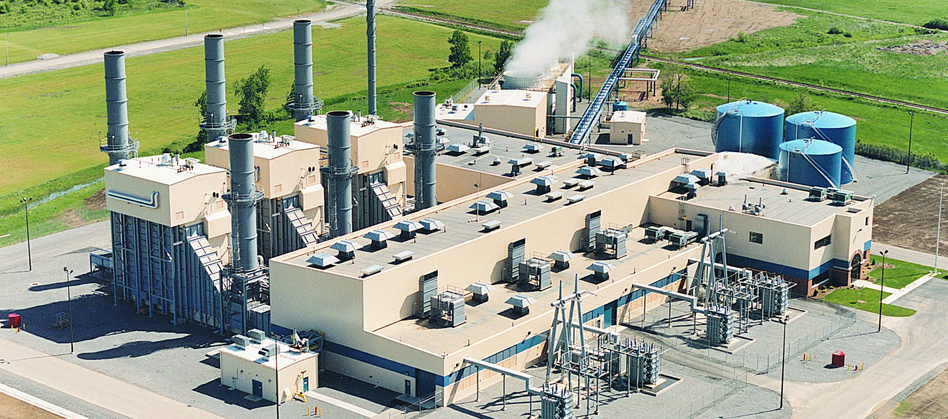Blog Post - Should I Consider Noise Control On Every Project?

Should I consider noise control on every project? The simple answer is yes. Every. Single. One. It could simply start by asking the question, "do we think noise might be an issue here?" and go from there. If the answer is a confident "no," then you are done and you move on. If the answer is "yes," or "I'm not sure," then more work is needed. I have three arguments for why to consider noise control on every project. I'll start with the simplest and usually the most convincing.
Argument number one for why to consider noise control on every project:
Noise Control costs much less in the design stage than during post-construction mitigation. I'll say that another way: if you consider noise in the planning and design stages, and noise control is determined to be necessary, then you get the best bang for your noise control buck. Conversely, if you don't consider noise in the beginning, and noise does turn out to be a problem, then not only might the controls be more expensive, but the installation of those controls will be much more expensive and very likely could require a shut-down to implement. If the problem arises through a litigation situation, then costs can obviously skyrocket. It is best to solve the problem before it becomes one.
Example: You installed a natural gas liquefaction facility and you did not consider noise in the planning stages. After start-up, it was determined that the noise from the piping connected to the (very large) compressors is the main problem. Depending on how large the facility is, you might have miles of loud piping to deal with! There are few feasible engineering control options; two of best are installing either a) acoustical pipe lagging (insulation) or b) in-line silencers. If the structural steel did not originally account for potentially heavy acoustical lagging, then it is not only the cost of the lagging materials and installation, but also the additional structural steel and engineering to figure out what is required. That takes time and potentially has huge costs. The other option, in-line silencers, requires process design engineering, additional structural support, a shut-down to install, and results in lost production capacity forever due to the additional pressure change associated with the silencer (that wasn't accounted for during the design stage).
Argument number two for why to consider noise control on every project:
Noise control treatments can have impacts on operational conditions. Noise is a facility design consideration and always should be! With any project, the mechanical requirements, structural requirements, set-backs, flow conditions, operating ranges, safety systems, etc., etc., are all considered and designed into the facility. Noise control should be, too. If required noise controls have the potential to change or affect these other design parameters, then does it not make sense to include noise control design at the beginning, along with everything else? Often, one of the biggest considerations is how much additional static pressure is added to the system, as in the case of building ventilation silencers or engine exhaust silencers.
Example: You installed a midstream gas compressor station with four large reciprocating compressors inside a building with shaft-driven vertical coolers on the exterior wall. Noise control was not considered in the design phase and it turns out that there is a local noise ordinance or a neighbor files a lawsuit, citing noise issues. Now assume that you got lucky and the building does a decent enough job of noise control, but the coolers are too loud. Options include either making the fan inherently quieter or installing a cooler enclosure or courtyard. The difficulty is the packaged compressor units were designed so that the cooler fan operates at its design efficiency and there is little, if any, allowable additional static pressure to the system. With either treatment, the design and operation of the cooler fan must be reevaluated.
Argument number three for why to consider noise control on every project:
If you don't consider noise in the planning and design stages, then you have already taken some good mitigation options off the table. Cost-effective noise control options in the design stage could include choosing a different site (with fewer or farther away neighbors or a more lenient noise regulation), buying more land, or orienting the facility a different way. Sometimes, noise easements can be negotiated. Of course once you buy and build, you're pretty much stuck with what you have. Returning to our first example, in-line silencers might not be physically possible given the compression capacity, piping configuration, available space/clearances, and existing structural capacity.
In summary, you should always consider noise control at the beginning of every project, even if it is to ask, "is noise likely to be an issue on this project?" Keep in mind:
- Noise Control costs much less in the design stage than during post-construction mitigation.
- Noise control treatments can have impacts on operational conditions.
- If you don't consider noise in the planning and design stages, then you have already taken some good mitigation options off the table.
USSI 3D animation that explores acoustical Compressor Building applications
 About the Author - Tim Simmons, Ph.D. - USSI Director of Industrial Acoustics
About the Author - Tim Simmons, Ph.D. - USSI Director of Industrial Acoustics
Dr. Tim Simmons manages USSI's Industrial Acoustics Department. Tim comes to USSI with a wealth of Acoustical and Noise Control knowledge and real-world experience. Tim holds a Ph.D. in Physics from the University of Mississippi and a B.S. in Engineering Physics from the University of Tennessee.
Member INCE, ASA, ASME
